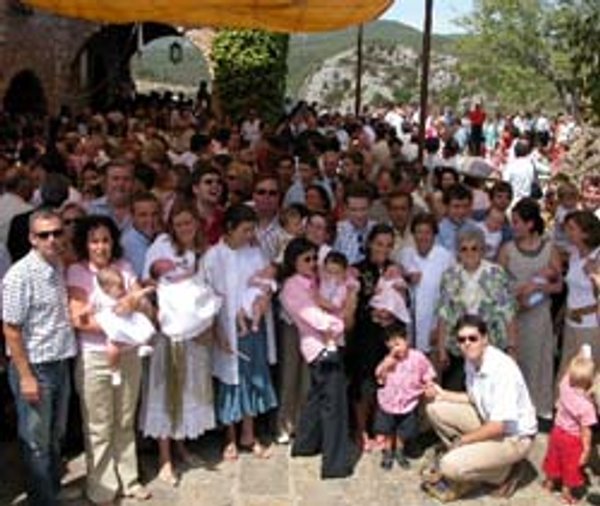After he brought our first parents into existence, the Lord extended that same creative act to Adam and Eve themselves. The Book of Genesis explains it quite plainly: “God blessed them and said to them, ‘Be fruitful and multiply; fill the earth and subdue it.’ ”
Pope John Paul comments: “Procreation (‘be fruitful and multiply; fill the earth…’) is an intimate part of the mystery of God’s creative act (‘in the image of God he created them’). The ‘offspring’ that is a necessary consequence of the metaphysics of creation, contingent as it is, comes into the world at a particular moment in time. Granting to creatures this procreative power is a great act of trust on the part of divine Wisdom—a trust exposed to the moral frailty and malice that mankind has displayed throughout its history.”
Adam was a responsible and intelligent being, generous and capable of giving himself without reserve. But at the same time, he was exposed to numberless temptations. Worst of all, that hidden aspiration to rival and even to supplant his Creator. Don’t we continue to see in our day that same temptation of the serpent in the “conquests” won as a result of human presumption? Consider the production of human embryos in vitro, then freezing and storing them so that they might be used as matter for future experimentation. And consider the even more monstrous attempt to clone a human being.
God gave great power to man, but with the intention that it be used for the generation of new life, to bring into the universe beings capable of loving and willing the good of others, of extending to them a share in the same good they have received—in a word, the gift of self.
This is how St. Josemaría expressed it: “Marriage is a sacrament which brings two bodies together as ‘one flesh.’… The Lord sanctifies and blesses the love of a man for his wife and of a woman for her husband. Not only are their bodies joined, but their souls as well. No Christian, whether he is called to marriage or not, can fail to esteem this great gift of God.”
